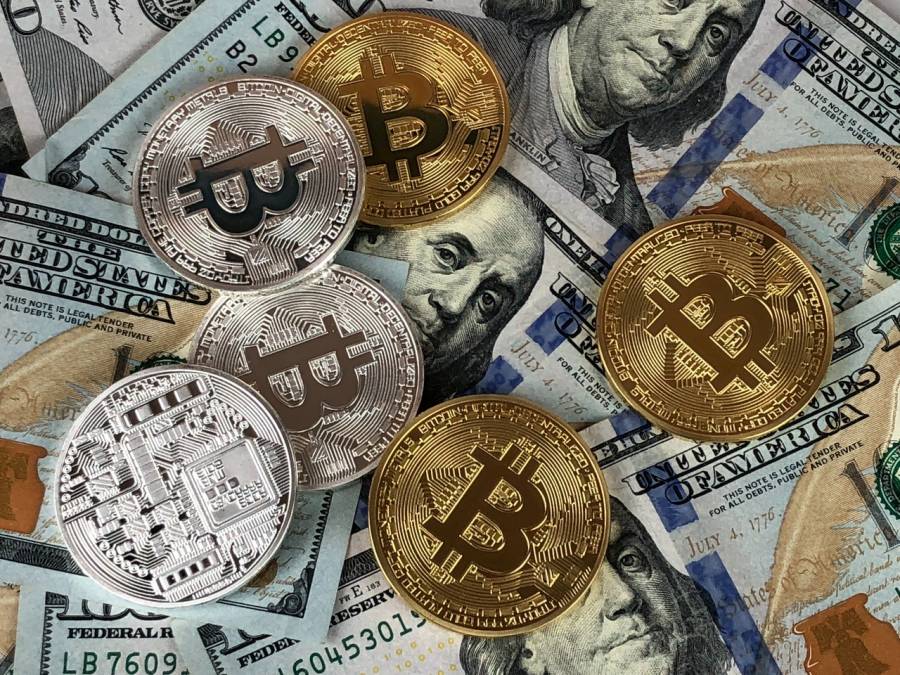If you’ve been paying attention to the cryptocurrency markets lately, you’ll know that Bitcoin, Ethereum, and even altcoins like Dogecoin are surging in popularity. Bitcoin itself has hit a peak above $60,000, while hovering at less than $10,000 just a year before.
So what’s responsible for this sudden boom in the cryptocurrency market? And is this upward trajectory going to remain – or is this another short-lived crypto bubble about to pop?
A Bit of History
First, let’s cover a bit of history. Bitcoin, one of the earliest cryptocurrencies (and certainly the most popular) was created in 2008 by an unknown individual (or possibly, a group of people). It began circulating in 2009, but didn’t gain much initial attention. A handful of early adopters immediately saw the potential of the currency, but for most people, cryptocurrency was seen as something mysterious, uncertain, and downright strange.
Around 2017, there was a major surge in crypto interest. Steadily rising prices, widespread available of crypto wallets, and heavily emphasized media attention sent Bitcoin prices soaring to nearly $20,000 by the end of the year. But this growth was retrospectively viewed as volatile and reactionary, as prices began to plummet in 2018 down to less than $7,000. Prices for other cryptocurrencies saw similar trends – rising sharply, then falling and stabilizing.
There, prices and public interest held steady for a few years, with a few lows and highs.
It’s only in the past few months that Bitcoin and other currencies have seen a massive resurgence, hitting massive all-time highs.
How exactly did we get here?
Coinbase and Renewed Public Acceptance
First, Bitcoin and other currencies have demonstrated their capacity for resilience – and the general public is seeing signs that these currencies are here to stay. Despite plummeting to major low points after a burst bubble in 2018, many naysayers insisted that this was the beginning of the end for a fad currency. But this was not the case; Bitcoin remained in use consistently in the years that followed, showing no signs of weakening as a currency in the market. Those who remember the sharp rise and fall 3 years ago have a renewed perspective on the currency, seeing it as more legitimate and capable of enduring hardships.
Adding to public confidence is a combination of many different businesses and organizations throwing their full support behind Bitcoin and other currencies. For example, Coinbase – an exchange where users can buy, sell, and use cryptocurrencies – introduced its initial public offering (IPO), trading publicly for the first time. It’s also reported enormous revenue growth, fueling investor optimism for the futures of both Coinbase and the cryptocurrencies traded on its platform.
Additionally, many other major companies have made recent moves that demonstrate the true power of cryptocurrency. For example, Visa and PayPal now offer cryptocurrency-related services, and Nvidia (known for their graphics cards) recently announced a new chip designed to specialize in cryptocurrency mining. It also helps that celebrities like Elon Musk have publicly stated their support for cryptocurrencies, driving their fans to purchase more coins.
Bitcoin Alternatives
We’ve spent most of this article talking about Bitcoin, since it’s the most visible and the most prominent of all cryptocurrencies, but we also need to acknowledge the supporting role of other cryptocurrencies, including Ethereum, Litecoin, and even the meme-based Dogecoin. Interest in these cryptocurrencies has a kind of synergistic effect; when more people buy and value a currency like Bitcoin, there’s a ripple effect to other currencies as people try to get in closer to the “ground floor.” But rising activity in other currencies is also good for Bitcoin, since it always gets residual attention from being the dominant player on the market.
Inflation and Economic Woes
Some people are investing more heavily in cryptocurrency because they have long-term economic concerns. Heavy quantitative easing, higher wages, cheap borrowed money, and other factors could be leading us to a period of high inflation and the reduced spending power of the American dollar. If this environment unfolds, a decentralized, independent digital currency would hypothetically increase in value compared to USD – resulting in a profit for holders.
COVID-19 and the Remote Digital Future
It’s also worth noting that the COVID-19 pandemic had a major impact on how we see and use technology on a daily basis. For many months, people were practically stuck indoors, paying digitally for everything and working remotely. It made people realize how decentralized we’ve become and how dependent we’ve become on digital technology – even if we’re not fully augmented cyber-humans yet.
In a world where people work remotely, pay digitally, and have full trust in online services, cryptocurrency is king.
FOMO
We also can’t afford to neglect the role of FOMO – the fear of missing out. When a consumer sees their friends, family members, and even strangers on the internet profiting off a trend, they’re often filled with anxiety at the thought of “missing out” on this opportunity. As Bitcoin rose from $10k to $20k, doubling the holdings of Bitcoin holders around the world, millions of people bought in just so they could be part of the assumed ride from $20k to $30k. Ironically, this increased buying action is a big part of what pushed the price of Bitcoin higher, driving even more FOMO.
The trouble with FOMO is that it often has a pyramid scheme-style effect; people sometimes buy in only because they believe someone else will buy in at a higher point, rather than because they believe in the inherent value of what they’re buying. Inevitably, when FOMO-driven buying actions reach a peak, they tend to crash in the aftermath.
Is This Another Bubble?
So is this the start of another bubble? Will we see the price of Bitcoin and other cryptocurrencies “pop” like it did in 2018?
It’s hard to say for certain, but there are a few factors that can help us contemplate the future accurately.
The price of Bitcoin, and its value, is derived almost entirely from consumer belief – just like all other forms of currency. There’s nothing inherently valuable about the piece of paper we call a dollar bill. The value comes from the fact that we collectively believe in its buying power; we have total confidence that it’s going to be accepted no matter where we take it, and that other people believe in its long-term reliability. The same is true for gold; it’s true that gold is scarce, but scarcity alone doesn’t make it valuable (for example, radioactive waste is even scarcer than gold, but its value is practically negative). Gold is valuable because we all believe it’s valuable.
Accordingly, the future of Bitcoin is entirely dependent on how consumer belief is changed. Currently, Bitcoin has proven itself practically “unbreakable.” It’s survived for 13 tumultuous years. It’s survived multiple burst bubbles. It’s even survived multiple hacking and manipulation attempts – even during its more vulnerable early years. Because of this, it would take a lot for consumer confidence to be shaken.
One force that could spur another big drop is regulatory action. The SEC, and regulatory agencies around the world, are closely scrutinizing the trading patterns of cryptocurrency. If they somehow restrict or modify access to cryptocurrency for large segments of the population, it could have a major impact on value and trading.
That said, the sharp rise in the price of Bitcoin may be an exaggerated one. While it’s true that consumer confidence is high (and still rising), it’s hard to say whether the price increases are an accurate reflection of the pace of confidence increases. In other words, it makes sense that the price of Bitcoin is going up – but this big of a leap may be unjustified.
Economics is a complex field of study and Bitcoin is a complex financial construct. No one can say for certain how the stock market is going to perform in the future – and for cryptocurrencies, we have far less information and less historical precedent. It’s easy to see how we got to this point, since we have the benefit of hindsight, but it’s pretty much impossible to say where we go from here.










